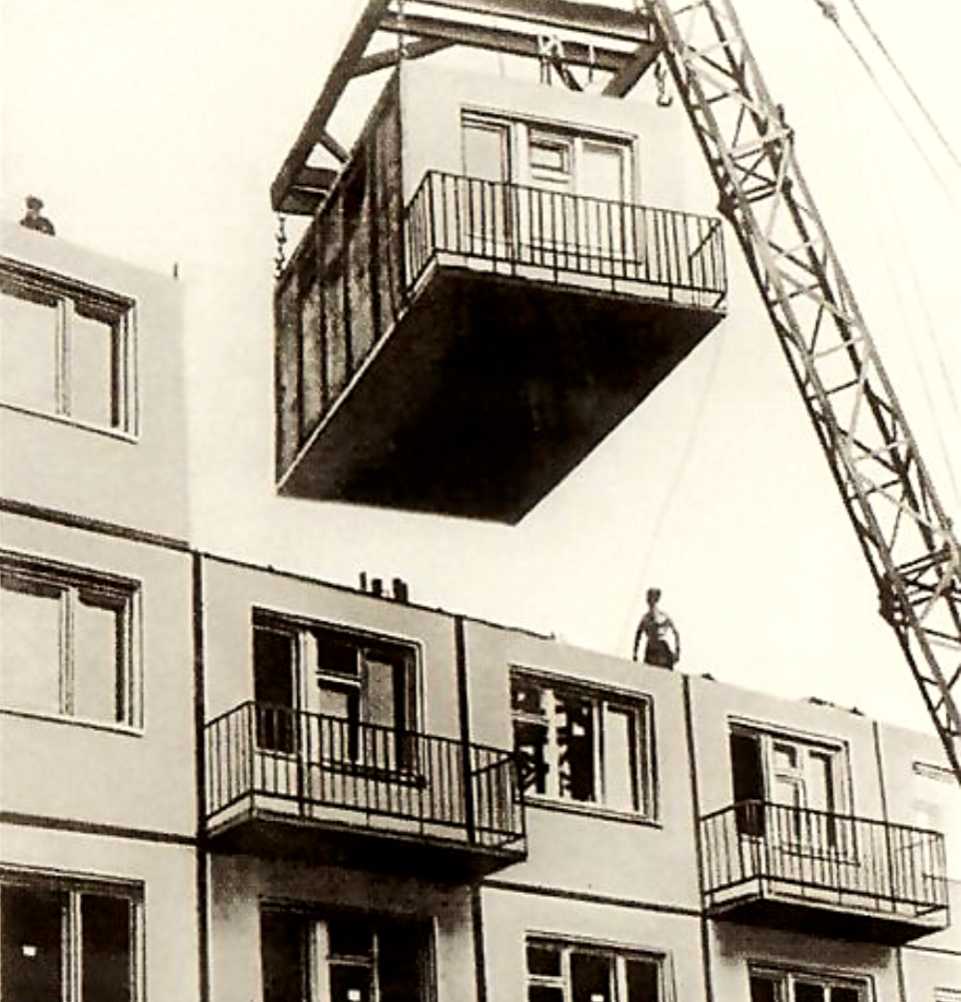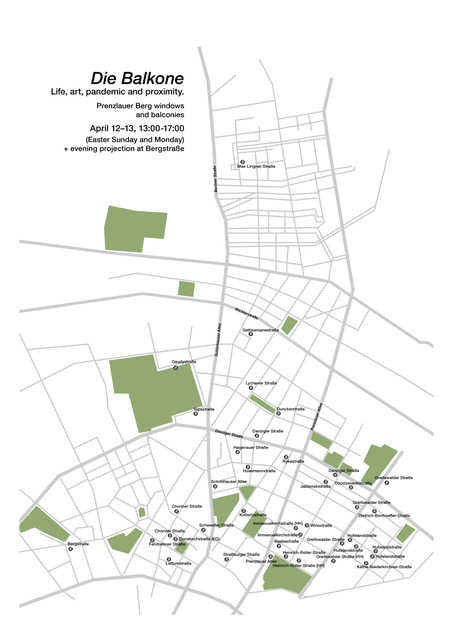This is an invitation addressing DAI's many Berliners: Die Balkone ~ Life, art, pandemic and proximity. Prenzlauer Berg windows and balconies ~ April 12–13, 13:00-17:00 (Easter Sunday and Monday) + evening projection in Bergstrasse
If we behave like those on the other side, then we are the other side. Instead of changing the world, all we'll achieve is a reflection of the one we want to destroy.
Jean Genet, The Balcony
Jean Genet, The Balcony
We are at the very beginning of a new cycle that we cannot yet situate ourselves in. Its first palpable experiences are shifts in the relationship between inside and outside; in the distance between one day and another; between what is private, public, and political. At the same time, care, protection, and vulnerability are growing with new meanings.
Balconies serve as the public apertures of the private. They seem to be where the house ends, and yet not. In their political history, they have both been terraces of openness and hope, as well as platforms for authoritarianism and supremacy. Balconies today are the thresholds from which we can encounter the world during the confinement of the domestic: which is safe and sound for some, but not for others. They are emergency exits to take a breath of fresh air, catch a moment of sunshine or a smoke. While our freedom of mobility is on hold, they become unique sites of everyday performance or even civic mobilization. Every architecture school has its own way of designing balconies. Everyone has their own way of inhabiting them. Especially now.
In times of quarantine, so many of us cultural workers living in Berlin happen to all be here; not far from each other, and yet absent as usual. We are asked to commit to the digital space, without critically estimating the effects of for-profit information technologies.
Berlin has an important history of artist squats, takeovers, one-night exhibitions. In former East Germany, what was public, in a sense of non-intimidated or uncensored art and life, frequently happened in someone's kitchen rather than out in the open. Specifically, Prenzlauer Berg is a place where home-made resistance against the GDR hit critical mass.
Die Balkone invites members of the artistic community living in Prenzlauer Berg to activate/inhabit their windows and balconies. With zero budget, no opening, and no crowds, the project proposes an intimate stroll (within current regulations) to search for signs of life, art, and points of kinship and connection. When some of us are cut off from our plans and our loved ones, we reach out to the balconies of the world, against isolation and individualization, not leaving everything in the hands of the virus and the fear it generates.
With: Salwa Aleryani and Matheus Rocha Pitta, Ulf Aminde, Rosa Barba and Jan St. Werner, Yael Bartana and Saskia Wendland, Elke Buhr and Tobi Müller, Matthias Daenschel, Jeremiah Day and Alisa Margolis, Christina Dimitriadis, Sam Durant and Ana Prvacki, Knut Eckstein, Theo Eshetu, Martin Frese and Eva Scharrer at Tina Löffelbein’s, Olaf Grawert, Jan Peter Hammer, Hannah Hurtzig, Stine Marie Jacobsen, Anne Duk Hee Jordan and Pauline Doutreluingne, Christoph Keller, Jessika Khazrik / Övül Ö. Durmusoglu, Matylda Krzykowski, Xavier le Roy and Scarlet Yu, Lage Egal, Antonia Low and Tommy Støckel, Lina Majdalanie and Rabih Mroué, Kamila Metwaly and Max Schneider, Markus Miessen and Lena Mahr, Tom McCarthy and Eva Stenram, Müller Dreimalklingeln and Sonja Lau, Olaf Nicolai, Andrea Pichl, Marta Popivoda and Ana Vujanović, David Rych and kids, Susanne Sachsse and Marc Siegel, Isabella Sedeka, Antje Stahl and Felix-Emeric Tota, Raul Walch, Joanna Warsza and Florian Malzacher, Christina Werner and others.
Initiated by Övül Ö. Durmusoglu and Joanna Warsza
All updates in Facebook event


